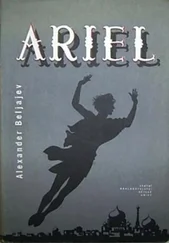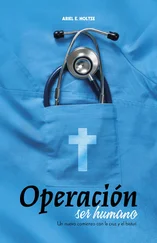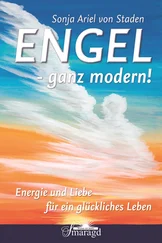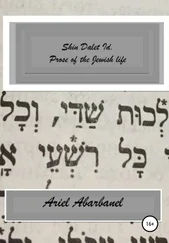Ariel Toaff - Blood Passover
Здесь есть возможность читать онлайн «Ariel Toaff - Blood Passover» весь текст электронной книги совершенно бесплатно (целиком полную версию без сокращений). В некоторых случаях можно слушать аудио, скачать через торрент в формате fb2 и присутствует краткое содержание. Жанр: Религиоведение, на английском языке. Описание произведения, (предисловие) а так же отзывы посетителей доступны на портале библиотеки ЛибКат.
- Название:Blood Passover
- Автор:
- Жанр:
- Год:неизвестен
- ISBN:нет данных
- Рейтинг книги:3 / 5. Голосов: 1
-
Избранное:Добавить в избранное
- Отзывы:
-
Ваша оценка:
- 60
- 1
- 2
- 3
- 4
- 5
Blood Passover: краткое содержание, описание и аннотация
Предлагаем к чтению аннотацию, описание, краткое содержание или предисловие (зависит от того, что написал сам автор книги «Blood Passover»). Если вы не нашли необходимую информацию о книге — напишите в комментариях, мы постараемся отыскать её.
Blood Passover — читать онлайн бесплатно полную книгу (весь текст) целиком
Ниже представлен текст книги, разбитый по страницам. Система сохранения места последней прочитанной страницы, позволяет с удобством читать онлайн бесплатно книгу «Blood Passover», без необходимости каждый раз заново искать на чём Вы остановились. Поставьте закладку, и сможете в любой момент перейти на страницу, на которой закончили чтение.
Интервал:
Закладка:
"Yes, I am perfectly persuaded and convinced that killing Christian children and consuming their blood and swallowing it was a good thing [...] If I could obtain the blood of a Christian boy for our Passover feast, of course I would drink it and eat it, if I could do so without attracting too much attention. Know ye that, although I have been baptized, I, Israel, son of Meir, may he rest in peace, a Jew of Brandenburg, intend, and have established in my soul, that I wish to die a true Jew. I had myself baptized when I saw that I had gotten caught, and in doubt that I might be condemned to death, believing that I could avoid it, as actually happened. Know ye, therefore, that I, Israel of Brandenburg, Jew, do no consider anything believed and observed by the Christian religion to be true at all. I believe with an unshakeable faith that the religion of Israel is correct and holy" [686] "Quod ipse Wolfgangus tenet et firmiter credit quod sit bene factum interficere pueros christianos et comedere et bibere sanguinem [...] et quod si ipse Wolfgangus posset habere de sanguine pueri christiani in festo Paschae ipsorum Judaeorum, etiam de illo biberet et comederet, dummodo posset illum secrete comedere et bibere; et quod, licet sit baptizatus, tamen intendit et in animo suo statuit velle mori ut realis Judaeus, et ipse Wolfgangus fecit se baptizare, quia vidit se captum et dubitavit ne condamnaretur ad mortem, credens se illam evadere, ut evasit [...] et ipse Wolfgangus nihil credit de his quae fides Christiana tenet et observat et quod tenet pro firmo quod fides Judaeorum sit justa et sancta" [Approximately: “That Wolfgang held and firmly believed that it was a good thing to kill Christian boys and eat and drink their blood […] and that if he could obtain the blood of Christian boys during the Jewish Passover feast, he would eat and drink of it, as long as he could eat and drink of it in secrecy; and that it was lawful to be baptized, but that he intended and wished in his soul to die a real Jew, and that he had himself baptized because he saw he had gotten caught and was afraid he’d be condemned to death, and thinking he could get off, which he did […] and that he didn’t believe there was any truth in the Christian faith and that he firmly held that the faith of the Jews was holy and just.”] (cfr. [Bonelli], Dissertazione apologetica , cit., pp. 147-148).
.
But not everything had gone wrong, at least from Israel of Brandenburg’s point of view. Not a single week had passed since his arrest before the young Saxon Jew, in his cell, was informed that Hinderbach had finally given in, perhaps in part to counterbalance foreseeable criticism of his decision to reopen the trials, and had consented to release the incarcerated women’s children. These were Mosè and Salomone, the children of
p. 221]
of Verona and of Dolcetta; Seligman, Meir of Würzburg’s young boy; Samuele da Nuremberg’s daughter-in-law Anna’s young boy, still in diapers; and the numerous offspring of the late Tobias, whose four children were named Joske, Mosè, Chaim and David. An envoy from the apostolic commissioner appeared at the castle of Buonconsiglio on 2 November and took delivery of the children, who were later taken to Rovereto and entrusted to the Jews [687] In this regard, see Divina, Storia del beato Simone da Trento , cit., voI. II, p. 110. Battista de' Giudici is said to have been later accused of having delivered the children to the Jews of Rovereto instead of having them baptized ("in quantum tradidit sanguinem innocentem perfidis Iudeis, videlicet infantes illos, qui modo essent Christiani, quorum animae plus valerent quam totus mundus"). Vedi [Bonelli], Dissertazione apologetica , cit., p. 132.
.
Little is known of their fate. Many of them were probably taken back to Germany and adopted by relatives or persons known by them, and seem to have disappeared from the pages of history. Only Mosè and Salomone, Angelo da Verona’s children, remained safely in Italy, entrusted to the Ashkenazi community which had worked so actively to obtain their release [688] The ritual decisions of the well-known rabbi Israel Isserlein da Wiener Neustadt refer to a compromise relating to the sharing of the inheritance of Angelo da Verona (who here appears under the name of Engel mi-Trient) among the orphan children, in a dispute before a rabbinical tribunal, the judges of which were from Treviso, Verona and Padua (Israel Isserlein, Pesaqim w-ketavim , Fürth, 1738, c. 17b, par. 102-103). Since Isserlein died in around 1460, it is not possible that the response, obviously linked to a situation later than 1475, can be attributable to him; the response was probably erroneously included among his writings. In this regard, see I.J. Yuval, Scholars in Their Time. The Religious Leadership of German Jewry in the Late Middle Ages , Jerusalem, 1984, p. 261. In August of 1498, the brothers, Mosè and Salomone, Angelo’s sons, appointed as their procurator Manuele da Rovigo to recover the loans forming part of their father’s inheritance (cfr. Simonsohn, The Jews in the Duchy of Milan , cit., voI. IV, pp. 2847-2848). It should be noted that Mosè, son of the late Angelo da Verona, was still alive and presumably rather old by the mid-Sixteenth century. He lived at Cremona (cfr. Simonsohn, The Jews in the Duchy of Milan , cit., vol. II, pp. 1335, 1357).
. Following the confessions of Brunetta, Samuele da Nuremberg’s widow, and the other women, followed by their conversion to Christianity, which occurred in January 1477, attempts to return the children to their mothers proved fruitless [689] On the conversion of the women detained at Trent, see, in particular, [Bonelli], Dissertazione apologetica , cit., pp. 158-160; Divina, Storia del beato Simone da Trento , cit., voI. II, pp. 204-206.
.
Bella, Anna and Sara, who had, at the time, voluntarily entrusted their children to the Jews of Rovereto -- now that they were converted and baptized under the names of Elisabetta, Susanna, and Chiara -- wanted them back urgently, ceding to the pressures of those who wished them to have the children baptized. Pope Sixtus IV himself, by a bull of 20 June 1478, addressed to Hinderbach, exhorted him to take all steps to ensure that they might be returned to the recently converted women, together with their dowries; the children were to be baptized. But his attempts in this direction were too late; it was like closing the barn door when the horse has already been stolen.
"We still wish, and we enjoin you to it with the same authority, that you shall use all diligence to ensure that the children of the condemned Jews be returned to their baptized mothers, together with their dowry, wherever that might be found, compelling any opponent or rebel by means of ecclesiastical censure and other means granted by law" [690] "Preterea volumus, et eadem tibi auctoritate iniungimus, quod omnem adhibeas diligentiam, ut infantes Iudeorum damnatorum filii, eorum baptizatis matribus, una cum dotibus matrum eorundem, apud quoscumque reperiantur deposite, omnino restituantur; contradictores quoslibet et rebelles per censuram ecclesiasticam, et alia iuris remedia compescendo" (cfr. Simonsohn, The Apostolic See and the Jews , cit., pp. 1246-1247). In this regard, see also Eckert, Trienter Judenprozesses , cit., p. 300. My text includes Divina’s translation of the passage from the Papal bull, Divina ( Storia del beato Simone da Trento , cit., vol. II, p. 212).
.
But the last scene of the drama was yet to be enacted. The drama finally concluded with the solemn appearance at the baptismal font of Salomone, the physician Tobias’s feeble-minded servant. The poor imbecile, deemed incapable of understanding or consenting, had survived the trial for little Simon’s murder because he gave no indication of knowing or remembering anything about it.
Читать дальшеИнтервал:
Закладка:
Похожие книги на «Blood Passover»
Представляем Вашему вниманию похожие книги на «Blood Passover» списком для выбора. Мы отобрали схожую по названию и смыслу литературу в надежде предоставить читателям больше вариантов отыскать новые, интересные, ещё непрочитанные произведения.
Обсуждение, отзывы о книге «Blood Passover» и просто собственные мнения читателей. Оставьте ваши комментарии, напишите, что Вы думаете о произведении, его смысле или главных героях. Укажите что конкретно понравилось, а что нет, и почему Вы так считаете.












